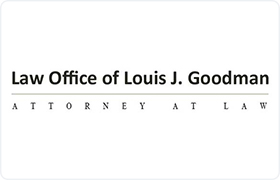 Oakland Felony Lawyers, California
Oakland Felony Lawyers, California
Sponsored Law Firm
-
 x
x

Click For More Info:
-
Louis J Goodman Attorney At Law
1290 B St Suite 307 Hayward, CA 94541» view mapCriminal Defense Law Tough, Experienced, and Professional
If you have been charged with a crime in Alameda County, California, contact The Law Offices of Louis J. Goodman.
510-582-9090
Lawyers
<
11-11 of 11 matches



 Louis J. Goodman Hayward, CA
Louis J. Goodman Hayward, CA Practice AreasExpertise
Practice AreasExpertise